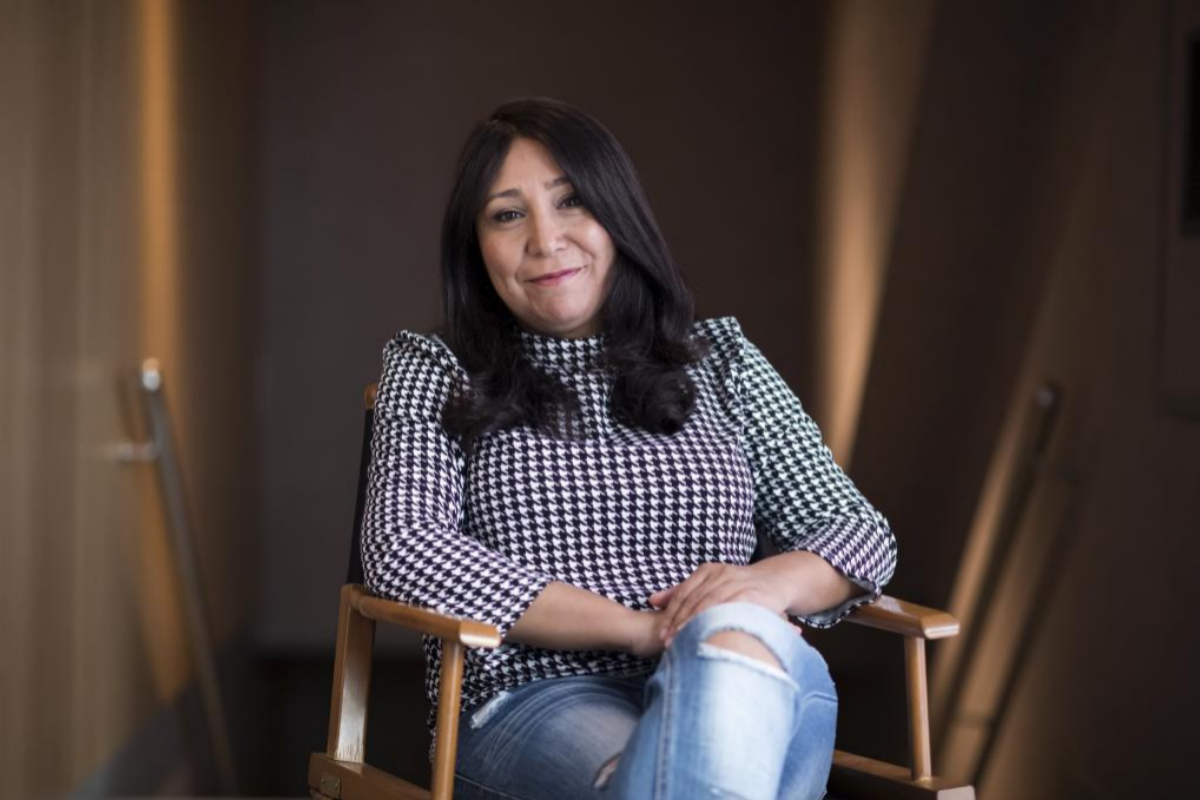The green bicycle, the first film by Haifaa Al-Mansour (Saudi Arabia, 1974) , was the story of a girl who wanted to ride a bicycle. In a green So easy. And from there, from the most obvious simplicity, the director managed to build a fable that was both manifest, poem and, in its own way, revolution. Without exaggeration, yes. The tape was secretly shot and it was for the double reason of being set in a country without cinemas and in a country without women. Or without women with voice. "There was an explicit prohibition," he says, "and that made everything more exciting and, at the same time, sadder . " Now, eight years later, and with two films signed in the United States (Mary Shelley and Desmelenada ), the perfect candidate premieres , the film with which he returns to his homeland, but now without vetoes. Or without all of them. Cinema is no longer prohibited, but much of everything else is. "The most important thing right now," says the director, "is legitimacy. Going down the street with my team and being able to roll without the police interrupting anything is a pleasure that is hard to explain . Losing fear is incredible ».
The new job speaks again of women. The story is told of a doctor who by accident, by pundonor and because she does start a political crusade in favor of herself in particular and of women in general. Again, do not panic, it is a story as simple as effective, as charming as it is free of edges. Let's say the vision that the film offers of the Saudi regime is more than critical, citrus. That is, acidic, but not scalloped.
"I am a feminist," he says to explain the tone, "but I have nothing against men. I have had to break many glass ceilings and I have had to fight a lot to get where I am and I do not want any woman or man to have to go where I have passed. I think feminism is a matter of both women and men. Pause. "A new meaning for masculinity that has to do with trust, love and support for women is necessary."
For Haifaa Al-Mansour, the important thing is to express oneself and find the place as a woman beyond «and against even the role assigned by tradition or culture» . And in this idea he becomes strong. He insists that he has not wanted to make a film against anyone, but in favor of the possibility of understanding and progress. «A revolution is necessary, but smooth. And that's why my movie is designed from humor, ”he concludes.
And how do you get all that in one of the most obvious tyrannies in the world? «Things are changing. Yes, it is true that Islam has one of its most conservative versions in my country. In fact, religion is almost a conspiracy against women, against their mobility, against the natural way of behaving ... But everything is changing little by little. Many things have to be reexamined and the woman herself has to be part of that debate. The veil, for example, is a way to victimize us. You have to accept the female body with due respect, ”he says, it takes a second and ends:“ I am not against religion since it fulfills a function, but it has to be something personal, it cannot be politicized or be part of the politics". It is clear.
And what do you think of the fees? «I agree with them, but at the beginning, to match a situation that has historically separated women. It cannot be that to achieve something you have to always be perfect. That does not happen to men. But when equality is reached, competition has to exist ». And there, so simple and clear again, leave it.
According to the criteria of The Trust Project
Know more- cinema
- Feminism
- culture
The Paper Sphere 'The scandal': the right wing of the 'Me Too'
The Paper Sphere 'The green wave', abortion and the law of the street
CineElisabeth Moss: "I wish I was pigeonholed in feminist roles"

